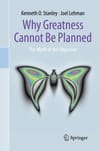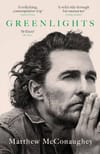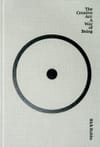
Why Greatness Cannot Be Planned: The Myth of the Objective by Kenneth Stanley and Joel Lehman challenges the conventional wisdom that success stems from clear, predefined goals. The authors, both AI researchers, argue that the obsession with objectives—whether in science, art, or personal ambition—often stifles true innovation. Instead, they propose that greatness emerges from open-ended exploration, a process they call "objective-free stepping stones." Drawing from their work on evolutionary algorithms like novelty search, they show how pursuing novelty over fixed targets can lead to breakthroughs that rigid planning might never uncover.
"Stepping stones don’t come with a map—they come with a willingness to wander."
The book’s strength lies in its blend of rigorous science and accessible storytelling. Examples like the invention of the wheel or the unpredictable evolution of Picasso’s art illustrate how detours and serendipity outshine linear progress. Their critique of modern systems—education, corporate ladders, even AI development—lands hard: goal-chasing creates a "deception trap," where short-term wins blind us to broader possibilities. The writing is clear, though occasionally repetitive, hammering the point home with zeal. Critics might argue it romanticizes aimlessness, but the authors counter that structure still matters—just not the suffocating kind.
Data backs their case. In experiments, their novelty-driven algorithms outperformed goal-oriented ones in solving complex mazes, suggesting that abandoning objectives can unlock paths we can’t foresee. Yet, the book isn’t a how-to manual; it’s a mindset shift, urging us to embrace uncertainty. It’s not flawless—practical applications feel vague at times—but it’s a compelling wake-up call for a world addicted to metrics.
"Greatness isn’t rare because it’s hard to achieve; it’s rare because we’re conditioned to ignore the adjacent possible—small, weird steps that don’t fit our plans but lead to unimagined heights."
Here’s the mind-blowing insight: Greatness isn’t rare because it’s hard to achieve; it’s rare because we’re conditioned to ignore the adjacent possible—small, weird steps that don’t fit our plans but lead to unimagined heights. Most of us fixate on destinations, missing the truth that the next big thing often hides in the overlooked, the unplanned, the seemingly trivial. This isn’t just novel—it flips our entire lens on progress, whispering that the secret to the extraordinary is already under our feet, if only we’d stop marching long enough to notice.




